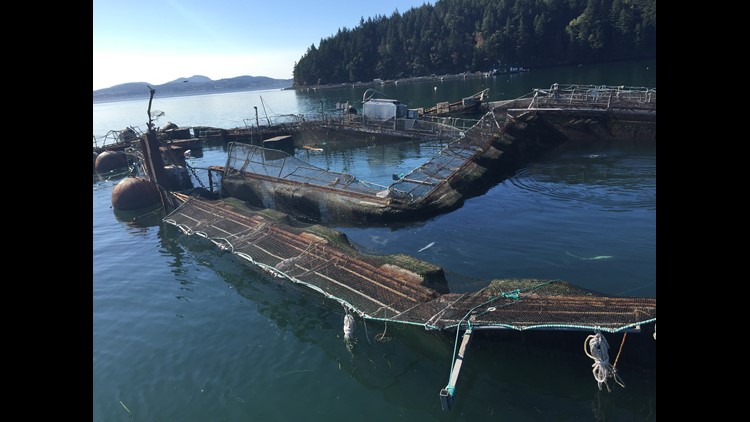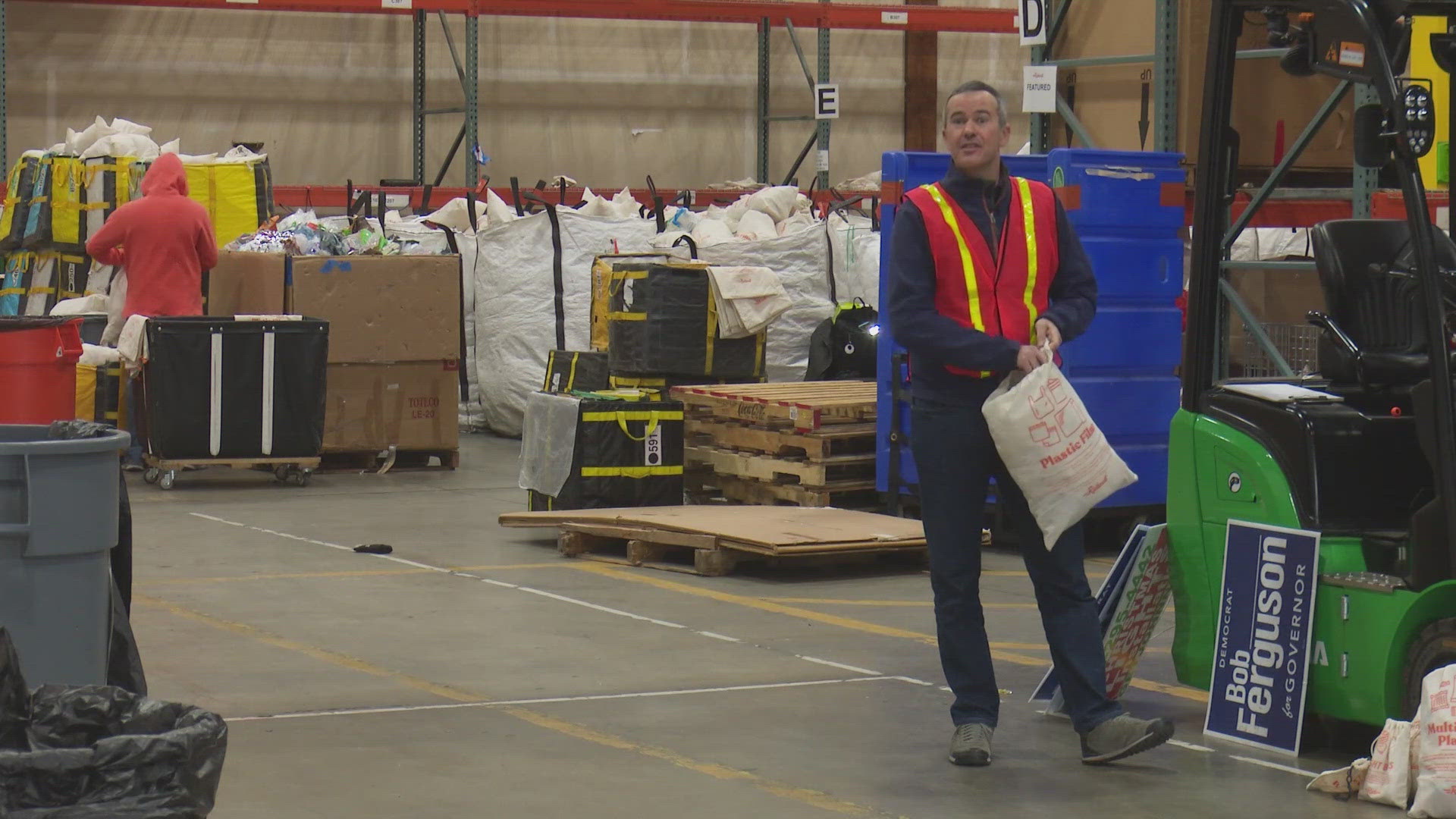The company that owns the fish farm in Washington's San Juans where thousands of non-native Atlantic salmon escaped last weekend is backing off the idea that Monday's eclipse had something to do with it. This as a conservation group says it plans to sue the company.
Cooke Aquaculture initially cited high tides from the approaching eclipse as a reason why the net pens failed. A revised press release on its website, dated Monday, no longer listed the eclipse as a possible cause. It instead said, "Exceptionally high tides and currents caused damage to a salmon farm that has been in operation near Cypress Island for approximately 30 years."
Scientists, however, say the spring tides during June were actually worse and tidal conditions now are not unusual, though tidal swings of between eight and 10 feet between the lowest to highest tides that weekend were occurring.
Oceanographers do consider the San Juan Islands, of which Cypress is but one island, to be the most extreme environment on the west coast for tides and currents. Currents on Saturday between Cypress and Guemes islands on Saturday topped out around 3.5 knots.
An Environmental group, Wild Fish Conservancy, announced Friday it will sue Cooke for violation of the federal Clean Water Act. The group says the release poses a threat to struggling wild fish populations and the ecosystem. It alleges the fish spill violates federal pollution laws because it sent farmed salmon, dead carcasses and other debris into the water.
A company spokeswoman did not immediately respond to a request for comment about the legal action.
The Washington state Department of Natural Resources has sent a notice of default to Cooke. The state says the breakup of the pens released anywhere from 4,000 to 305,000 non-native Atlantic salmon into the waters of the Pacific Northwest.
Cooke Aquaculture is a Canadian based company which purchased the 30-year-old pens in 2016. According to DNR, Cooke leases the undersea land from the state, and the default notice is for the unintended release of fish.
Various agencies including DNR, Washington Department of Fish and Wildlife, and Department of Ecology are working on a coordinated response Friday in dealing with the fish emergency.
The Washington state Department of Fish and Wildlife has encouraged anglers to come catch the fish, but with some stipulations.
"Anglers must have a current fishing license and must also observe gear regulations identified in the 2017-18 sport fishing rules pamphlet," WDFW said in a statement. "There is no size or catch limit on Atlantic salmon. However, anglers may only fish for Atlantic salmon in marine waters that are already open to fishing for Pacific salmon or freshwater areas open to fishing for trout or Pacific salmon. Anglers also must stop fishing for Atlantic salmon once they've caught their daily limit of Pacific salmon in marine waters or their daily limit of trout or Pacific salmon in freshwater."
WDFW also wants anglers to report their catch online so fish managers can track the fish being caught.
The Lummi Nation declared a state of emergency Thursday.



